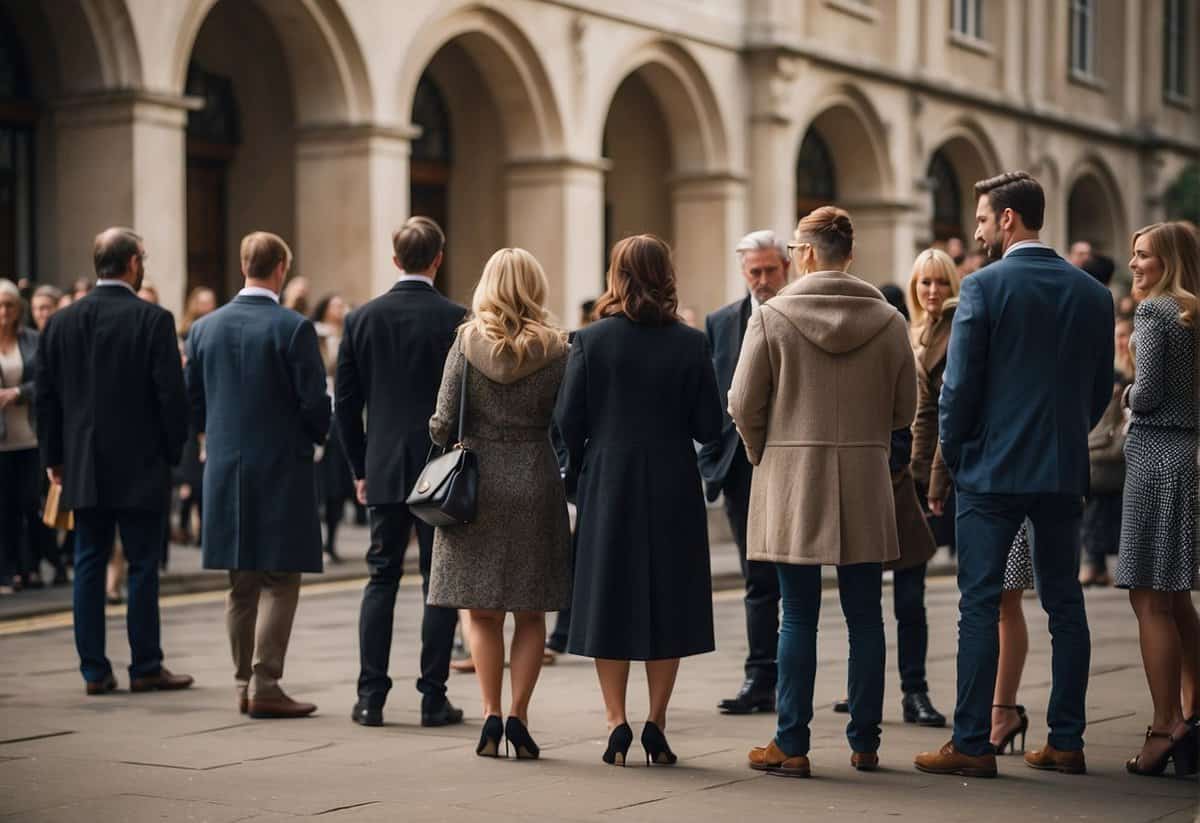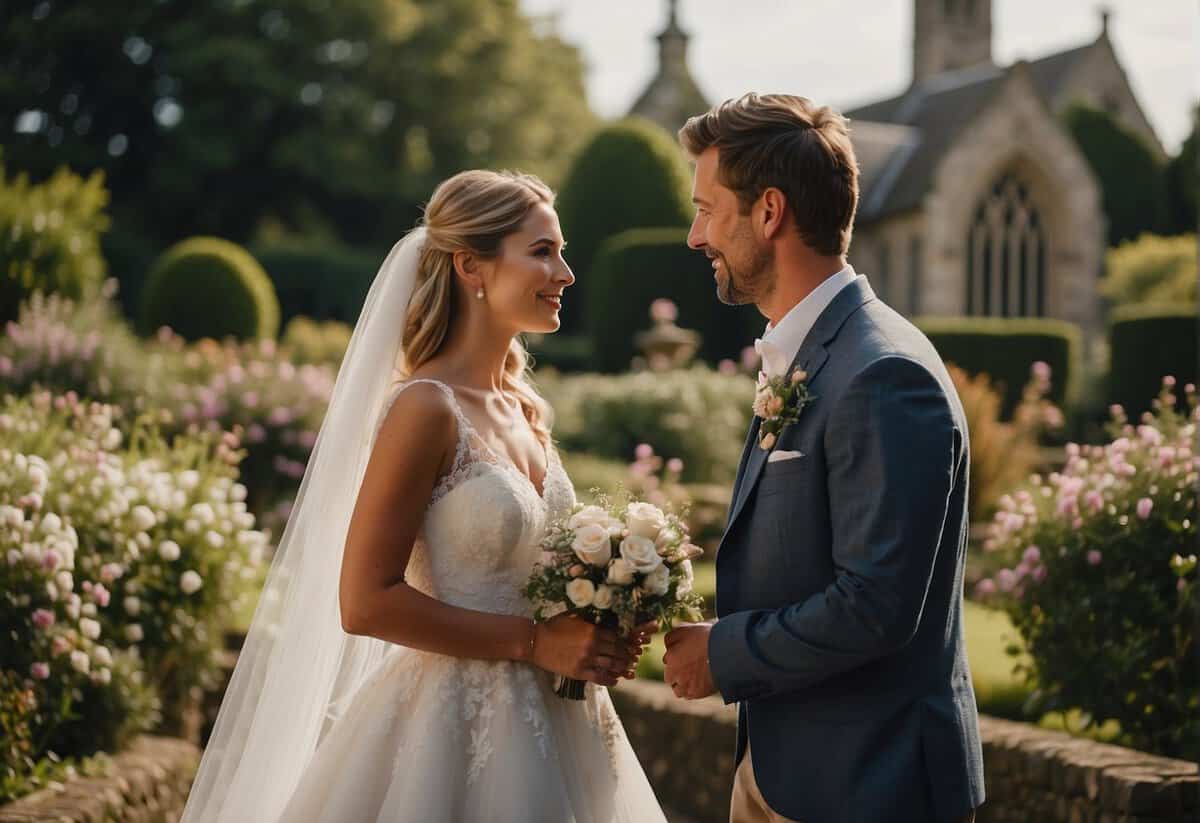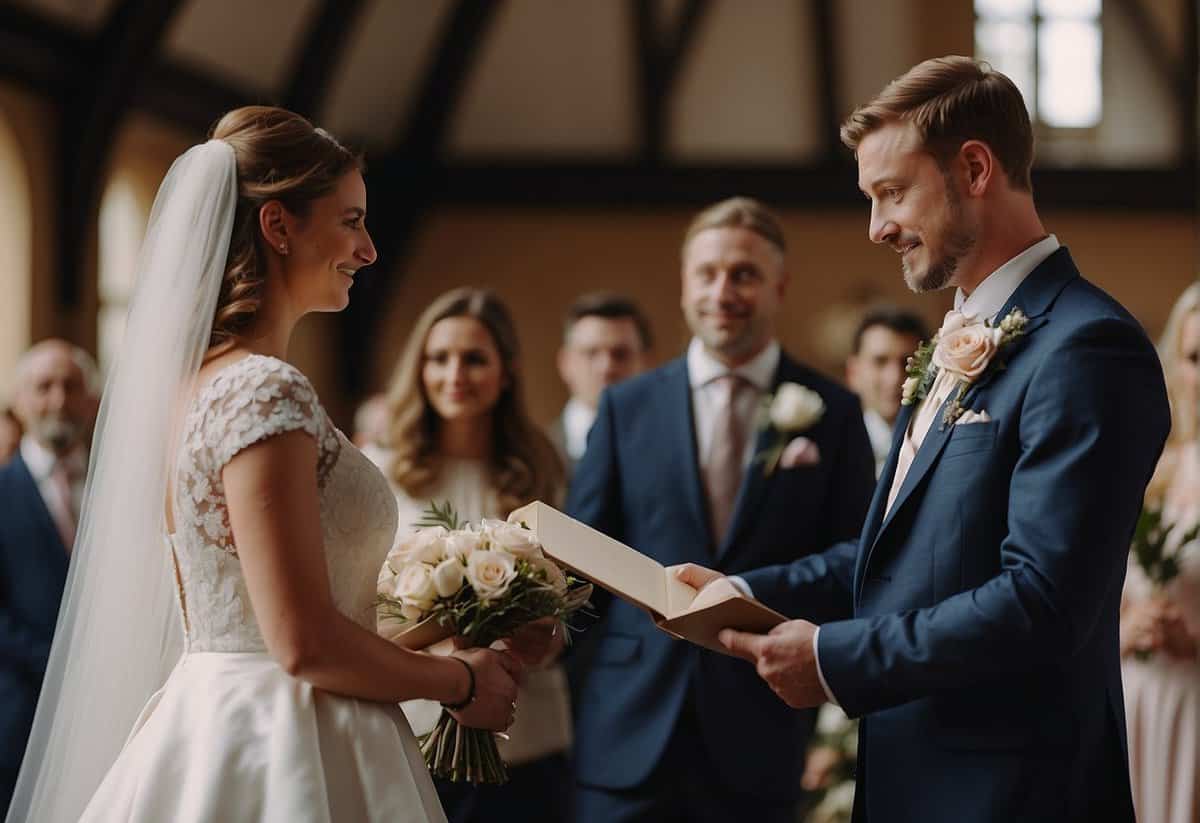Can I Get Married Quickly in the UK? Essential Tips for a Speedy Ceremony
When considering tying the knot in the United Kingdom, you might wonder if it’s possible to have a quick wedding. The process of getting married quickly in the UK does depend on meeting certain legal requirements, including giving notice of your intention to marry. Once notice has been given, there must be a waiting period of 28 days before the marriage can take place. However, under some circumstances, this period can be reduced. But, it is important to understand that a ‘quick’ marriage is not immediate and prior planning is essential.

Organizing a marriage in a short timeframe can be done by selecting a licensed venue and opting for a more straightforward ceremony. However, the same legal procedures apply whether you plan a large wedding or a small one. The swiftness of the marriage will generally hinge on the availability of the venue and registrars, so flexibility might be key. Ensuring you have all necessary documentation ready beforehand can also expedite the process.
Key Takeaways
- Legal requirements dictate a waiting period post giving notice.
- Venue and registrar availability influence how quickly you can marry.
- Preparing documentation in advance can speed up the marriage process.
Understanding the Legal Requirements

To get married quickly in the UK, you need to understand the specific legalities involved. Knowing the eligibility criteria and having all the required documentation ready are crucial steps in the process.
Eligibility to Marry in the UK
To be eligible to marry or form a civil partnership in the UK, you must be at least 18 years old in England and Wales. In Scotland, you can marry from the age of 16 without parental consent, while in Northern Ireland, if you’re under 18, you will need consent. Besides age, you must also have the legal capacity to marry, which means you’re not currently married or in a civil partnership. If you have been married before, you’ll need to provide a decree absolute or a death certificate of your former spouse.
Immigration status plays a role too. Non-EEA nationals might require an entry visa or a specific marriage or civil partnership visitor visa if planning to stay in the UK for less than 6 months. If you have indefinite leave to remain or pre-settled status under the EU Settlement Scheme, this can positively influence your ability to marry in the UK.
Required Documentation for Marriage
Before you give notice of your marriage at your local registry office, which is a mandatory step, ensure you have the necessary paperwork:
- Proof of name and age: typically through your birth certificate
- Proof of nationality: usually your passport
- Proof of address: this could be a utility bill or bank statement
- Proof of immigration status: such as your visa, settled status, or documentation from the Home Office
- If either of you is under 18 years old and marrying in Northern Ireland, evidence of consent must be provided
Remember, you will need to give notice of marriage at least 29 days before your ceremony, regardless of your nationality. If either of you is from outside the European Economic Area (EEA) or Switzerland and subject to immigration control, the Home Office may extend this period to 71 days to investigate whether the relationship is genuine.
Planning Your Ceremony

When planning your wedding in the UK, the two essential aspects you need to consider are selecting the right location for your ceremony and understanding the necessary residency requirements and notice period.
Choosing the Right Venue
Finding a venue that resonates with your vision of the perfect wedding day is crucial. In the UK, you have an array of venues to choose from for both civil and religious ceremonies. For civil ceremonies, options range from a local register office to various approved premises such as hotels, historic buildings, or even a scenic castle. If you prefer a religious ceremony, you can opt for a religious building like a church. Adhering to traditional venues, the Church of England offers Anglican ceremonies, while Jewish and Quaker communities have their specific venues for religious weddings.
Keep in mind that popular UK wedding venues get booked quickly, especially during peak season, so plan ahead. If you dream of a destination wedding, it’s vital to research and secure your venue early to avoid disappointment.
Residency Requirements and Notice Period
Before you get married, you must meet certain legal requirements. Regardless of whether you’re having a religious or civil ceremony, you must give notice at your local register office at least 29 days before your wedding date. However, if you or your partner are not from the UK or Ireland, this period could extend up to 70 days — Marriages and civil partnerships in England and Wales.
- Civil Ceremony: At least 29 days notice at the local register office
- Religious Ceremony (Anglican): Usually no need to give notice, but requirements may vary
- Other Religious Ceremonies (e.g., Jewish, Quaker): At least 29 days notice along with required documentation
The notice states your intention to marry and must be displayed publicly in the register office for 28 days. Remember, you must marry within one year of giving notice. For specific residential conditions and more detailed requirements, you should consult with the register office or a wedding planner. Additionally, integrating UK wedding traditions into your ceremony may require additional planning.
Plan carefully to ensure you adhere to the necessary residency requirements and are aware of all costs involved, which may include fees for the notice and the ceremony itself. As the costs can vary, inquire at the venues and the register office to set an expected wedding budget.
Finalizing Your Union

In the UK, once you’ve decided to get married or enter into a civil partnership, there are essential steps to make it official. It involves registering your intent and obtaining a marriage certificate.
Registering Your Marriage or Civil Partnership
To legally certify your relationship in the UK, you and your partner must register it. Whether it’s a marriage or a civil partnership, the process is similar. Firstly, you must choose a registration district and give notice at the local register office. Same-sex couples have the same legal steps for a civil partnership or marriage as opposite-sex couples.
- Giving Notice: This is an announcement of your intent to marry and must be given at least 29 days before the ceremony. For a civil partnership, this period may vary and can be up to 12 months before.
- Necessary Paperwork: You’re required to provide proof of your age, nationality, and marital status—whether single, divorced, or widowed.
- Residents: If you or your partner are not a British or Irish citizen, you might need to provide additional documents.
- Special Cases: For those having Jewish weddings or other ceremonies with religious traditions, additional steps or requirements might be relevant.
Remember, during the application to register, you’ll be asked whether you have been previously engaged and if an engagement ring symbolizes this commitment.
Obtaining Your Marriage Certificate
After your ceremony, the most crucial document to validate your union is your marriage certificate. This certificate is proof of your marriage and is necessary for many official purposes following your wedding.
- Application: You can apply for your marriage certificate directly at the ceremony or later through the local register office.
- Civil Partnerships: For civil partnerships, the process of obtaining a ‘civil partnership certificate’ is essentially the same.
Securing your marriage or civil partnership certificate is essential for any legal matters post-ceremony, and it’s a physical testament to your commitment to each other amidst the various wedding traditions and customs in the UK.
Frequently Asked Questions

When you’re aiming for a quick marriage in the UK, several key points are to be considered, from understanding the legal requirements to grasping the associated costs.
What are the requirements for a quick marriage in a UK registry office?
To marry quickly at a UK registry office, you must be at least 18 years old, not already married or in a civil partnership, and not closely related to your partner. Marriages and civil partnerships in England and Wales require you to give a formal notice of your intention to marry at your local register office.
Is it possible to have a same-day wedding in the UK?
Same-day weddings are not possible in the UK as there is a legal requirement to wait at least 28 full days after giving notice at the register office before the marriage can take place, subject to certain conditions being met.
What are the costs associated with a speedy marriage ceremony in the UK?
The costs for a straightforward marriage ceremony in the UK vary. You’ll each need to pay a notice fee and the cost of a marriage certificate. For example, notice fees are typically around £35, and a marriage certificate costs about £11.
How can foreigners legally get married quickly in the United Kingdom?
If you’re a foreign national aiming to get married quickly in the UK, you should first book a date with the local registrars where you wish to get married. You’ll need to comply with the same notice period and might need a visa depending on your circumstances.
Are there special provisions for getting married urgently due to illness in the UK?
Yes, if you’re facing an exceptional circumstance where one partner does not have long to live, it may be possible to waive the notice period for marriage. You should contact your local register office for guidance on this urgent procedure.
What is the minimum residency period required to get married in the UK?
Before you can give notice of your marriage in the register office, you need to reside in the district where you intend to marry for a minimum of seven days.

